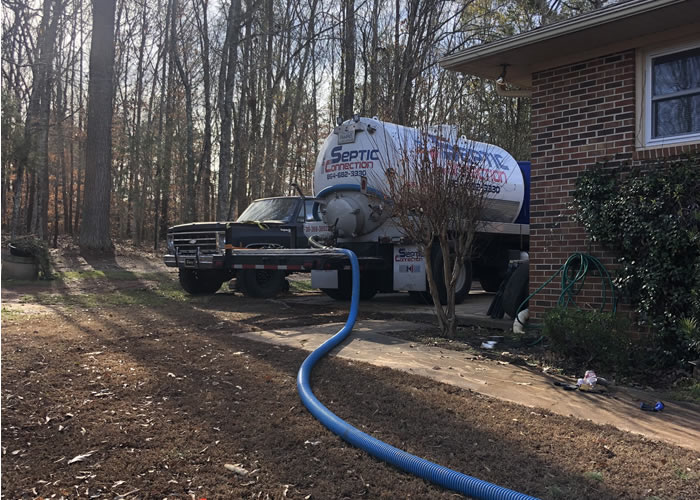Call This Thursday to Get $25 OFF
Clean Solutions, Dirty Jobs – Done Right. Reliable. Responsive. Remarkable.
Call This Thursday to Get $25 OFF
Clean Solutions, Dirty Jobs – Done Right. Reliable. Responsive. Remarkable.
Septic systems are the unsung heroes of waste management in many homes and are often taken for granted. Homeowners typically understand the basic concept—a septic tank breaks down waste—but beyond that, it fades into the background. Trouble surfaces when you delay septic tank pumping and maintenance. At Septic Connection, we understand how homeowners inadvertently harm their septic systems and provide quality septic tank repair services to optimize performance and durability.

One of the most insidious culprits in septic system sabotage is the use of toxic household chemicals. Bleach, drain cleaners, and various cleaning agents may appear harmless when used sparingly. Still, their impact on your system can cause devastating damages and costly septic tank repair emergencies. These chemicals disrupt the delicate balance of bacteria inside the septic tank, which breaks down waste.
While bleach disinfects effectively, its excessive use can wipe out the beneficial bacteria inside the septic tank, impairing its ability to break down waste and potentially leading to blockages.
These potent chemicals dissolve clogs and the vital bacteria within your septic system, causing it to function less effectively with time. Prolonged use can cause severe deterioration and premature septic tank installation projects.
The septic system is an onsite waste treatment facility, and it is incredibly reliable. However, the system is only as effective…
Imagine flushing your toilet and then suddenly realizing that your backyard has turned into a swampy mess. This unpleasant experience is…
Soil testing is a critical step in various construction and environmental projects. It provides essential information about the ground conditions, which…
Grease traps are remarkable tools that help keep your establishment clean and free from bad odors. Septic Connection has a…
If you have just moved into a new home or property that relies on a septic system for waste and wastewater…
Products boasting antibacterial properties may contain chemicals that harm your septic system’s biological processes, essential for waste digestion. Before using an antibacterial product, consult a trusted septic company for professional advice.
Improper food waste disposal is another subtle way homeowners unwittingly harm their septic systems. While garbage disposals seem convenient, they introduce solid materials into the septic tank that decompose far more slowly than human waste. This influx of waste can overwhelm the system, leading to clogs and unplanned septic tank installation costs.
Pouring cooking fats, oils, and grease down the drain might seem innocuous, but these substances can congeal and create clogs within your septic system, hindering the natural breakdown of waste. We recommend routine septic tank pumping to reduce waste buildup, minimizing the risk of backups and burst piping.
Food remnants from dishes and cookware can accumulate in the septic tank, displacing essential bacteria and interfering with digestion. If you require regular septic tank repair sessions, check what goes down your drains to avoid expensive emergencies.
Many homeowners believe septic additives can enhance their system’s performance, but the reality is often quite different. Septic additives often contain chemicals that can upset the delicate microbial balance within the septic tank.
Some septic additives promise to clear pipes or boost bacterial activity, but their effectiveness could be better. Using them can disrupt the natural microbial ecosystem inside the tank.
While certain biological additives contain helpful bacteria, they can also introduce foreign strains that compete with or harm the existing beneficial bacteria in your septic system.
Understanding how homeowners damage their septic systems is essential for maintaining trouble-free operation and avoiding costly repairs. If you suspect a problem with your system and require the services of a professional septic company, contact Septic Connection and schedule a consultation with our experts.
It started like many household plumbing problems do: slow drains, gurgling sounds, and water backing up where it shouldn’t. The assumption was simple—a stubborn clog somewhere in the pipes. A…
Read moreWhen septic problems start, many homeowners look for quick and inexpensive solutions. Online videos, store-bought additives, and advice from well-meaning neighbors can make do-it-yourself septic fixes seem appealing. Unfortunately, septic…
Read more